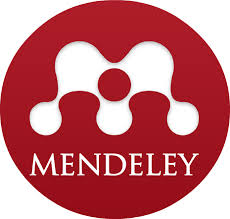Pendekatan pembelajaran reggio emilia berbasis stimulasi kreativitas anak usia dini
DOI:
https://doi.org/10.24903/jw.v9i1.1506Abstract
The Reggio Emilia learning model is a model that is currently rife in the world of education and is used by educators in the process of learning activities. In the Reggio Emilia approach emphasizes making projects as a result of learning so as to stimulate or encourage children to create ideas that they think of, because this learning is oriented to children, so that it can increase children's creative abilities based on their talents. However, the phenomenon that occurs today at the education level, especially at the pre-school level, is often found that learning activities tend to be centered on educators. Learning activities that occur are not fully child-centered and make the learning system unattractive to children, as a result children will experience saturation in learning activities, children also have no room to develop their abilities in imagining, exploring, and innovating their ideas and ideas. The purpose of this study was to determine the Reggio Emilia learning approach based on stimulation of early childhood creativity. The method used in this research is a literature study based on theories related to the case or problem found. While the data collection technique in this study uses primary data obtained from several national and international journals and articles. The results showed that the Reggio Emilia approach can encourage children's creativity with several aspects, namely the personal aspects that children have, the driving aspects that are programmed and well coordinated, aspects of the creative process from the preparation stage to improvement, and finally the product aspect as a result of the form of creativity which is the advantage or characteristic of the Reggio Emilia approach system so as to produce learning products. The findings in this study, through the Reggio Emilia approach, children are given the freedom to learn according to their abilities, interests, with child-oriented learning so that educators only serve as facilitators who facilitate children and children to work on their own products directed by educators.
Downloads
Published
How to Cite
Issue
Section
License
Copyright (c) 2024 Puput Nurhayati, Hibana, Adelia Tsamrotul Fikriyah

This work is licensed under a Creative Commons Attribution-ShareAlike 4.0 International License.
Authors retain copyright and grant the journal right of first publication with the work simultaneously licensed under a Creative Commons Attribution 4.0 International License that allows others to share the work with an acknowledgement of the work's authorship and initial publication in this journal.









